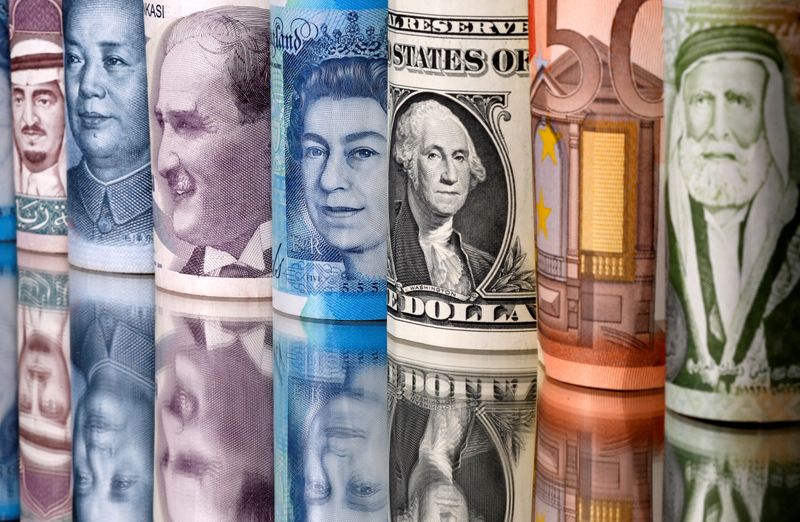By Hideyuki Sano
TOKYO (Reuters) - The dollar held firm against many of its rivals on Wednesday after U.S. retail sales jumped far more than expected in May,
while risk-sensitive currencies were hobbled by concerns about the coronavirus and geopolitical tensions in Asia.
Federal Reserve chairman Jerome Powell also doused some of the rosy expectations on Tuesday, as he painted a rather bleak picture of the U.S. economy while also cementing market hopes for continued policy support.
The dollar index (=USD) stood at 97.003, having risen about 0.4% on Tuesday.
The euro traded at $1.12635 (EUR=), steady so far in Asia after having lost 0.5% on Tuesday and in consolidation after hitting a three-month high of $1.14225 a week ago.
Against the yen, the dollar was little changed at 107.39 yen
Tuesday's data showed U.S. retail sales jumping 17.7% last month, outstripping economists' median forecast of 8.0% increase.
The surge in retail sales last month recouped 63% of March and April's decreases, raising hopes of a quick recovery in the consumption, the driver of the U.S. economy.
Still, Fed chairman Powell had a word of caution in his testimony at Congress, saying output and employment would remain well short of their pre-pandemic levels for a long time, so there was a "reasonable probability" that more policy support would be needed.
Powell added that a full U.S. economic recovery will not occur until the American people are sure that the novel coronavirus epidemic has been brought under control.
That still remains far from certain, with new coronavirus infections hitting record highs in six U.S. states, including populous Texas and Florida, on Tuesday.
China also sharply ramped up restrictions on people leaving the capital on Tuesday in an effort to stop the most serious coronavirus flare-up since February from spreading to other cities and provinces.
"Market players are looking to, with caution, how critical the impact from any second wave of infections on the economy will be," said Kazushige Kaida, head of FX sales at State Street (NYSE:STT).
"It's not that markets are pessimistic... But the length of time people hold their positions is getting shorter," Kaida said.
The Australian dollar eased 0.27% to $0.6865
"In Asia, there is a bit of risk-off mood following a renewed outbreak of coronavirus in Beijing and also some geopolitical tensions in the region," said Kyosuke Suzuki, director of currencies at Societe Generale (OTC:SCGLY).
North Korea on Tuesday blew up a joint liaison office set up in a border town in 2018 to foster better ties with South Korea, prompting Seoul to say it will no longer accept unreasonable behavior by the North.

India's army said 20 of its soldiers had been killed in clashes with Chinese troops at a disputed border site in the western Himalayas - the first fatalities since a major border clash in 1967 between the nuclear-armed neighbours.